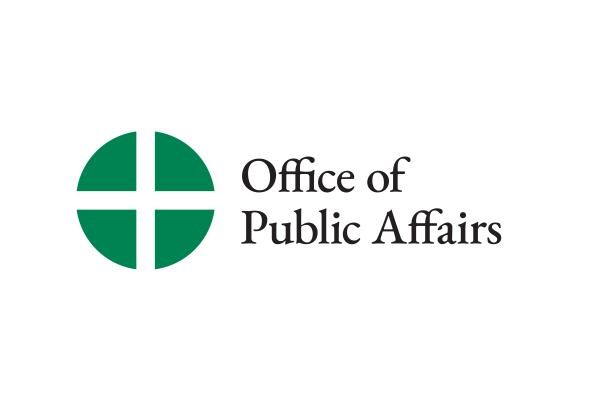U.S. Lutheran Catholic Dialogue Begins Work on Final Statement
WASHINGTON (April 2, 2001) -- The Lutheran Catholic Dialogue in the United States held its sixth meeting at St. Paul's College here, March 29-April 1. In this tenth round, the dialogue is beginning to work on a draft of a final statement, under the theme The Church as Koinonia of Salvation: Its Stru
WASHINGTON (April 2, 2001) -- The Lutheran Catholic Dialogue in the United States held its sixth meeting at St. Paul's College here, March 29-April 1. In this tenth round, the dialogue is beginning to work on a draft of a final statement, under the theme The Church as Koinonia of Salvation: Its Structures and Ministries. The discussion focused particularly on the relationship of the congregation/parish and synod/diocese, and the ordained ministries that serve them. The dialogue moved from research on the biblical, historical and theological differences and common faith on the nature of the church as a communion of salvation, to the task of drafting a text for its final report.
Six sections of the draft were prepared, one reviewing the work of previous dialogues and noting how this report will contribute to the full communion between the churches. The second section included an extended treatment of the common understanding of the church as communion (koinonia) in Scripture, especially the New Testament. The third section of the text will cover the common history from the biblical church until the Reformation, with a focus on the questions of ordained ministry and church structure.
The next section will cover the Reformation and the Council of Trent and the decisions the Church made at that moment about its structures and ordained ministries. A final section, on which much work remains to be done, will outline the contribution of this dialogue to the reconciliation of these churches in communion, attempting to reconcile understandings of congregation/parish, diocese/synod, bishops/presbyters, and some attention to the universal ministry of the bishop of Rome, already treated extensively in earlier Lutheran Catholic dialogues. In this section, recommendations will be made for next steps in the journey toward unity.
These dialogues, on the U.S. and global levels, have been taking place for 30 years. The most public achievement of the dialogue to date was the 1999 signing of the Joint Declaration on Justification by Faith by the Holy See and the Lutheran World Federation. This present dialogue is building on the recommendations, content and method of that Declaration. The representatives of the churches hope their work will contribute to that full communion between Lutherans and Catholics to which both churches are committed.
Dr. Alvin Barry, president of the Lutheran Church-Missouri Synod, died the week before the dialogue. Dr. Charles Arand of Concordia Seminary was absent because of the funeral, which was also attended by Rev. Lowell Almen, General Secretary of the ELCA, a member of the dialogue. Time was spent in prayer recalling the memory of Dr. Barry and for the intentions of the Lutheran Church-Missouri Synod. This second largest Lutheran church in the U.S. is an observer to the dialogue but did not sign the Joint Declaration.
In addition to theological scholarship, the dialogue group shares in prayer, worship, and reflections on other dimensions of the ecumenical movement in which the two churches participate. A luncheon was hosted at Trinity College by president Patricia McGuire. Auxiliary Bishop Richard J. Sklba of Milwaukee presided and preached at a Saturday evening Mass at the Basilica of the National Shrine of the Immaculate Conception, and Bishop Charles Maahs, Lutheran co-chair, brought greetings. On Sunday, Bishop Sklba preached at Resurrection Lutheran Church in Arlington, VA, where the dialogue worshiped with the congregation.

